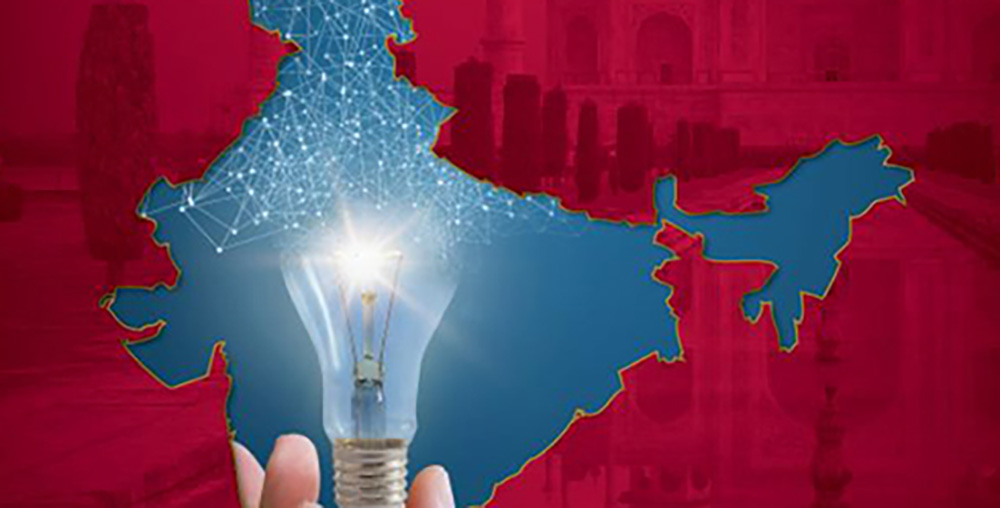
What organizations can learn from Indian family businesses and entrepreneurs.
By: Mike Mitchell
On a recent trip to India, Wisconsin School of Business Center for Professional & Executive Development Executive Director Jon Kaupla and I had the opportunity to interview various business leaders. While some of these leaders worked for large organizations, most worked for family businesses, were entrepreneurs, or supported the entrepreneurial ecosystem. While we gathered insight into what is driving innovation in India, we also learned that Indian family businesses and entrepreneurs have a great deal to teach nonfamily-owned organizations about innovation. So what can large, publicly held organizations learn from Indian family businesses and entrepreneurs? We observed a few critical lessons.
Key dynamics that drive innovation in family-owned businesses
According to the Economic Times, India ranked 3rd in the world for family-owned businesses in 2018. Additionally, family-owned businesses in India returned more than twice the amount to shareholders than did nonfamily-owned businesses. Innovation plays a significant role in these rankings, so we closely examined how innovation is supported in family businesses. We found two dynamics that support innovation in a family business: “trust” and “partnership.”
We found two dynamics that support innovation in a family business: “trust” and “partnership.”
Mike Mitchell
The first powerful dynamic, trust, is a popular topic in businesses today. Intuitively, we know trust is important in successful businesses. How does trust play a role when a family business needs to innovate? Put simply, each generation trusts that the next generation has the ability and skills necessary to move the family business forward. The kind of trust that drives innovation in family-owned businesses is “competency trust.” When a member of the new generation expresses desire to innovate, the patriarch (or matriarch) fully trusts that the younger family member has the ability to succeed with the new venture. This trust provides confidence that the rising generation needs to take the risk necessary to innovate. It’s not that the older generation blindly trusts the next generation. We were told stories of fathers strongly challenging the new ideas their children were bringing to the table. However, at the end of the day, they believed in their children’s ability and that provided the fuel for the next generation to try new things, moving the business forward.
Of course, it’s relatively easy to trust your own children as they propose new things to the business that has supported the family for perhaps generations. An older leader of the family and business has been successful so why shouldn’t their children have inherited the ability to also be successful? Trust comes naturally in a family business. Can the same be said for a nonfamily business?
Organizations can learn a great deal about the value of trust and the role trust plays in innovation. Any employee willing to take a risk needs to have confidence as they take on the unknown outcomes associated with innovation. Like the fathers or mothers of family-owned businesses, innovators in organizations need to know that their superiors trust their capability to successfully do the difficult work of innovation. Venturing into the unknown is risky business, fraught with reasons to pull back. An innovator that knows they are trusted to succeed continues on and will maintain their confidence and take the organization to new, never before attempted heights.
The second dynamic driving innovation in India’s family business is partnership. What is a better example of partnership than a functional family and family business? The family business depends on everyone joining in, stacking hands, and working together to succeed. The continued growth of the family business through innovation is everyone’s responsibility. Likewise, if a family member wants to try something new, and convinces the family members that it’s the right thing, then the entire family jumps in to ensure success. No one in the family sits back when braving the new frontiers that innovation affords the family business. Everyone joins in, does what they can, and shares equally in either the success or failure of the new venture.
As with trust, partnership can come easier in a family business. After all, the business began and grew as a result of the entire family pitching in and supporting each other. However, the spirit of partnership can also exist in a non-family business and organizations can model this important dynamic to drive innovation.
Firstly, an organization that demonstrates partnership views innovation as everyone’s business and job. It’s not just the job of the “innovation department” to find new sources of revenue or other new ways to add value to the organization. Instead, anyone can contribute based on what they see needs to be improved or added. Additionally, those specifically charged with innovation in an organization need to know the organization is behind them and stands ready to assist in the pursuit of new ideas.
Supervisors need to act like partners, not “bosses,” get involved, and assist with the hard work of innovation. The boss can’t merely “supervise” or manage by exception. Innovators will take risk and keep up the hard work of innovation if they feel they are not in it alone – if they have partners. With true partnership, innovation can thrive in any organization.
With true partnership, innovation can thrive in any organization.
Mike Mitchell
Helping Entrepreneurs thrive
India’s ranking in the world for entrepreneurs has been climbing dramatically in the last few years. Cisco’s former CEO, John Chambers, recently stated, “India is becoming an entrepreneurship model for the world.” The spirit of entrepreneurialism and focus on helping entrepreneurs succeed permeated all the organizations we visited and executives we interviewed. What is it about entrepreneurs that India understands so well? India understands that entrepreneurial spirit needs to be celebrated and nurtured.
India understands that entrepreneurs have the ability to drive the economy forward because they are out-of-the box thinkers. Consequently, universities, private organizations, and the government are finding ways to support those who have a new idea. At the heart of all this support is the goal to help entrepreneurs realize something they firmly believe in; their idea. Similar to how families demonstrate trust in a family member willing to take risk, the rapidly developing entrepreneurial ecosystem in India is designed to demonstrate that the system trusts and believes in the entrepreneur’s new idea. With this practical and emotional support, the entrepreneur can successfully move forward and continue to fuel India’s developing economy.
So what lessons can any organization learn from the burgeoning ranks of innovative entrepreneurs in India?
Practical and emotional support is critical. Practically, innovators must be given resources to bring their idea into focus. They need resources to prototype, test and learn as their new idea takes shape. Additionally, there is the value of emotional support that practical assistance provides. Tangible, practical support provides invaluable “lift” an entrepreneur needs to keep pushing forward. India appears to truly understand the importance of this kind of support and acts as if the country’s future depends on entrepreneurs.
Doesn’t the future of any organization also depend on the entrepreneurial spirit of its employees? To fuel entrepreneurialism and the innovation it will bring, organizations need to provide tangible and practical support for new ideas. Supporting innovation can’t simply be lip service – grandiose calls to action from CEOs and Annual Reports. Instead, organizations need to act like they mean it when they say they will support entrepreneurial efforts. When organizations visibly put their money where their mouth is, the passion of organizational entrepreneurs is fueled by demonstration of authentic support.
Our research efforts allowed us to examine what drives innovation in India’s family businesses and what fuels entrepreneurial success. Our observations reveal the importance of trust, the value of partnership, how practical and emotional support allows entrepreneurialism to thrive. These are lessons for any organization that values innovation. What is driving innovation in India’s rapidly developing economy can be used to drive innovation in any organization.

Mike combines over 35 years of business experience with a passion for developing executives and organizations. He integrates theory with real-world application and brings relevance to every client assignment. Having held senior-level positions in large corporations, Mike understands the reality of organizational life and leader challenges. Industry experience is expansive and includes: CPG, Manufacturing, Creative Services/Advertising, Consumer Durables, Technology, Agriculture, Medical, Insurance, Finance, Utilities, and Retail among others.